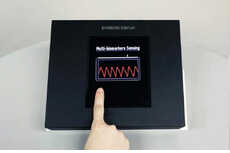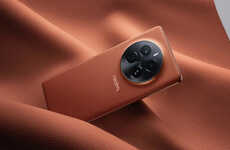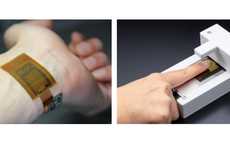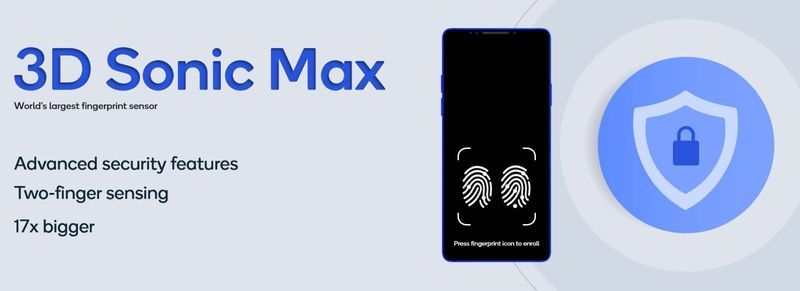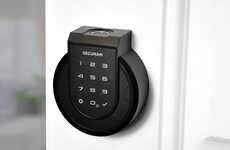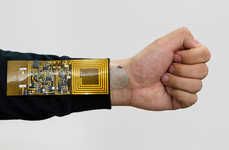
Qualcomm's 3D Sonic Max Can Scan Two Fingers Simultaneously
Daniel Johnson — December 4, 2019 — Tech
Qualcomm created thee '3D Sonic Max' which is a large, in-screen, fingerprint sensor. The company states that the 3D Sonic Max is 17 times larger than the previous model created by the company. Due to the increased size, it as able to authenticate two-finger simultaneously, which is able to drastically to increase a device's security. The system measures in at 20mm x 30mm and it has an area of 600 square millimeters.
Qualcomm's fingerprint scanner works differently than similar devices, this is due to the fact that it operates using an ultrasound of a fingerprint, where other devices use optical images. This allows the system to be more reliable, and it even works when the user has wet fingers.
The company states that the new system will be available in consumer devices next year. Previously Samsung implemented Qualcomm's older fingerprint scanner into its devices.
Image Credit: Qualcomm
Qualcomm's fingerprint scanner works differently than similar devices, this is due to the fact that it operates using an ultrasound of a fingerprint, where other devices use optical images. This allows the system to be more reliable, and it even works when the user has wet fingers.
The company states that the new system will be available in consumer devices next year. Previously Samsung implemented Qualcomm's older fingerprint scanner into its devices.
Image Credit: Qualcomm
Trend Themes
1. In-screen Fingerprint Scanning - The development of a larger and more advanced in-screen fingerprint scanning system creates the opportunity for more secure and convenient device security.
2. Simultaneous Authentication - The ability for a fingerprint scanner to authenticate two fingers at once presents new opportunities for securing devices and verifying user identity.
3. Ultrasound Fingerprint Scanning - The use of ultrasound technology in fingerprint scanning creates a more reliable and adaptable method of authentication, with the potential for new applications outside of device security.
Industry Implications
1. Mobile Devices - As in-screen fingerprint scanning becomes more advanced, opportunities arise for device manufacturers to improve device security and convenience for users, potentially leading to increased market share.
2. Cybersecurity - The increased security and convenience of in-screen fingerprint scanning, combined with the ability to authenticate two fingers simultaneously presents new opportunities for cyber security professionals to create stronger authentication methods.
3. Medical Devices - The use of ultrasound fingerprint scanning technology in medical devices, such as portable scanners for patient identification, could provide a more reliable and hygienic method of authenticating user identity.
1.7
Score
Popularity
Activity
Freshness


